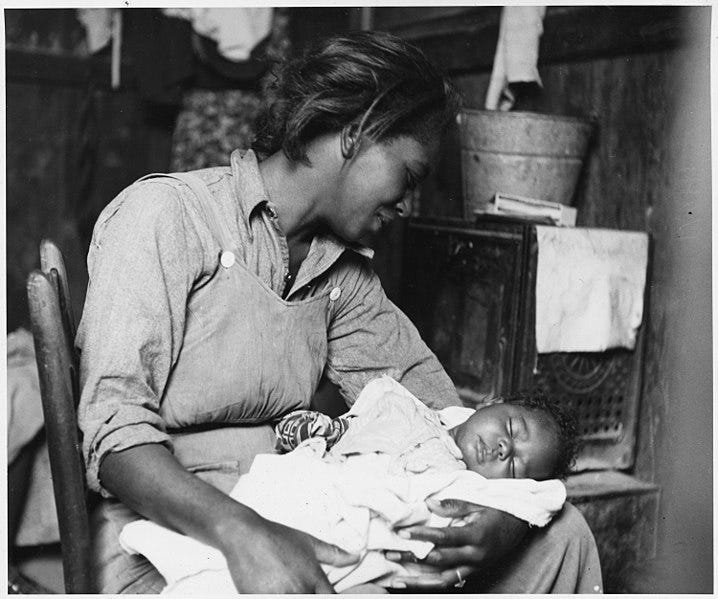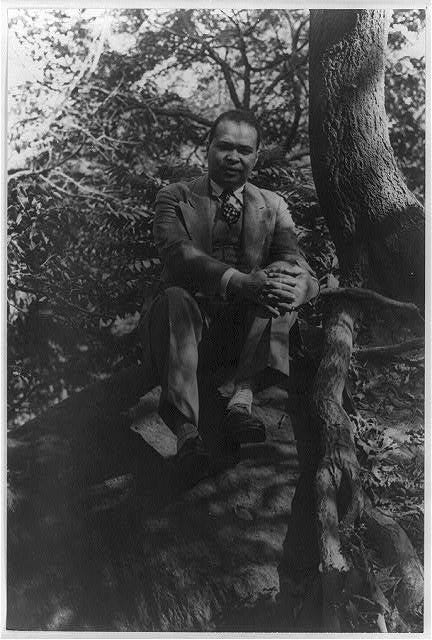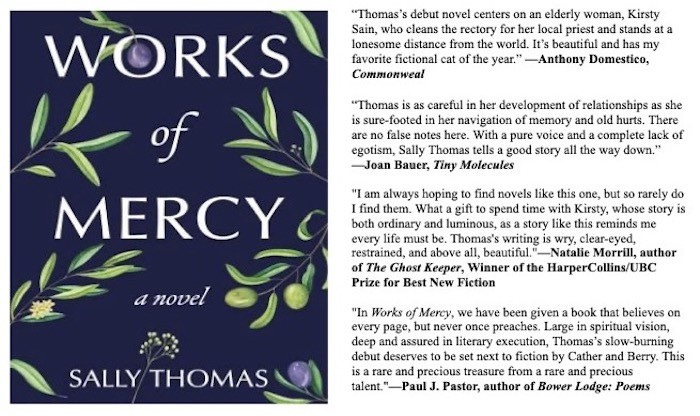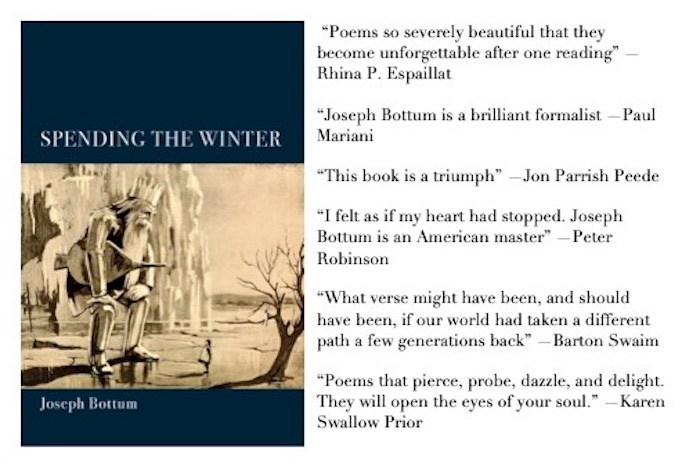
In Today’s Poem, the 1925 “Saturday’s Child,” the Harlem Renaissance poet Countee Cullen (1903–1946) inverts the old proverbs, truisms, fairy tales, and mythologies surrounding a birth. For his speaker, the conventional imagery of good fortune and anointing — the silver spoon, the mysterious star, the good fairies gathered with their gifts — forms an alien language, a language he must borrow and transform in order to locate himself in the world, but also in the English poetic tradition.
We might understand the ballad feel of this poem (though it’s in abab common-meter stanzas) as another borrowing from tradition, a way for an outsider to place himself inside that tradition — except that what the ballad traditionally does is to tell bad-luck stories, not fairy tales. For Cullen the form in which he tells his bad-luck fairy tale represents a poetic birthright rooted in inversions and trade-offs: “silk and down” for the “sackcloth gown” of penitence, for example, though the child’s only sin is having been born. Poverty and Pain stand in for the “opulent fairies” who bestow gifts. Death delivers him to life. Sorrow, not joy, is the “only kind of middle wife / My folks could beg or borrow.”

And the father who might have rejoiced in having a son instead pronounces a self-condemning prophecy, like an almanac: “Bad time for planting seed.” The child who might have been a gift is instead, and only, a burden, “One more mouth to feed.” “Saturday’s child works hard for a living,” says the familiar nursery rhyme. This origin story tells us why.
Saturday’s Child
by Countee Cullen
Some are teethed on a silver spoon,
With the stars strung for a rattle;
I cut my teeth as the black raccoon —
For implements of battle.
Some are swaddled in silk and down,
And heralded by a star;
They swathed my limbs in a sackcloth gown
On a night that was black as tar.
For some, godfather and goddame
The opulent fairies be;
Dame Poverty gave me my name,
And Pain godfathered me.
For I was born on Saturday —
“Bad time for planting a seed,”
Was all my father had to say,
And, “One mouth more to feed.”
Death cut the strings that gave me life,
And handed me to Sorrow,
The only kind of middle wife
My folks could beg or borrow.





Oh, that is so beautifully sad.
Tears at six in the morning. Thanks from an old man.